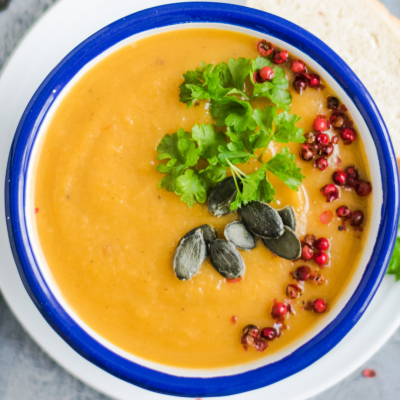The problem: what the science says
The food system we have built up over the last seventy years is no longer fit for purpose in the face of the climate, nature and health crises and is working against us, not for us.
We have intensified the way we produce and consume to such an extent that we have pushed our planet beyond its ability to cope and taken nature, our greatest ally, to the brink. Our food systems contribute to, and are influenced by, climate change and nature loss, while driving a global health crisis of hunger, obesity and diet-related disease.
The latest UN report (IPCC WG3, April 2022) by the world’s leading climate scientists offers a comprehensive assessment of the impact of human activities on global warming. Food systems are associated with roughly 42% of global greenhouse gas emissions according to the report, with livestock farming a major contributor. Meat from ruminants such as sheep and cows have the highest GHG intensity.
Producing meat and dairy takes up swathes of land with half of the world’s habitable land being used for agriculture with more than three-quarters of this used for livestock production, while contributing only 37% of the protein in the global food supply.
Intensive agriculture is the biggest driver of habitat and wildlife loss, while crowded conditions for farmed animals are potential breeding grounds for dangerous pathogens and emerging pandemics, risking public health.
A ‘less and better’ way forward
Meat in moderation is not unhealthy, but we need to think differently about how we produce it and how much we eat. We can unpick the complexity of the food system we have created and farm in a more natural way. That means a phasing out of industrial livestock farming and a scaling up of agroecological and regenerative practices, where farmers work to restore and enhance nature, boost soil fertility and protect precious water resources. Livestock numbers are reduced and animals are free to roam, in pasture-fed systems, ending the reliance on imported feed which drives deforestation. This is the ‘less and better’ approach.
If we eat less meat, we can make space in our diets for inexpensive, healthy and nutritious plant proteins such as beans and pulses. That means growing more food in our fields for humans to eat, with a greater emphasis on horticulture, more diverse crops and more seasonal and locally grown vegetables, fruits, nuts and pulses. The latest IPCC reports says eating less meat and shifting to plant-based diets can lower GHG emissions, while offering benefits to land use, the environment and our own health.
Retailers and food service, hugely influential in what we eat, need to play their part too. That means embedding sustainability across the business and supporting people to moderate their meat and dairy consumption and eat healthier diets with more plants and pulses. That means setting targets to sell less meat and more plant-based foods and tracking progress.
This shift requires all sectors to work together to fundamentally change how we produce, deliver, market and consume food. That means better marketing regulations, procurement policies, dietary guidelines, labelling and “nudges” to normalise plant-based eating and ‘less and better’ meat. The IPCC concludes that making food part of the solution to the challenges we face needs “integrated packages of policy.” Government needs to be the agent of change.
